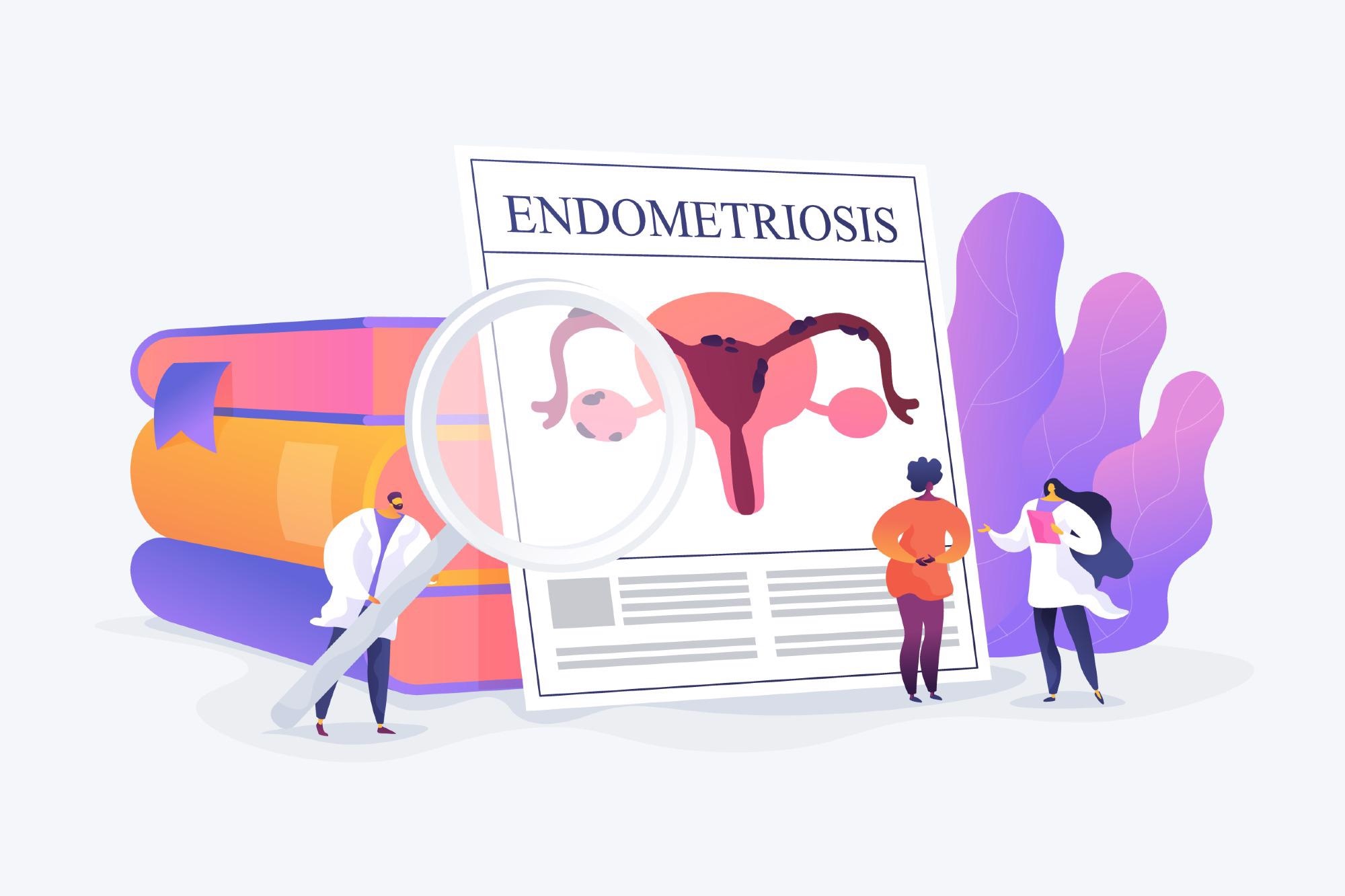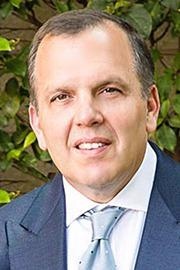 Thought LeadersDr. Laurence OrbuchCEO and Medical DirectorGYN Laparoscopic/Robotic Surgery Associates LA
Thought LeadersDr. Laurence OrbuchCEO and Medical DirectorGYN Laparoscopic/Robotic Surgery Associates LAIn this interview, News-Medical talks to Dr. Laurence Orbuch about the lack of understanding behind gynecological conditions like endometriosis and how this needs to change.
Please introduce yourself and tell us about your career in gynecology.
My name is Dr. Laurence Orbuch, and I am a board-certified obstetrician/gynecologist practicing in Beverly Hills, California. I have been in practice for 24 years, and my practice focuses on the treatment of endometriosis.
You advocate for a holistic approach to treating endometriosis and other gynecologic conditions. What does this mean for patients, and why do you think it is the best course of action?
In addition to offering patients the best and most cutting-edge surgical treatment of endometriosis, which is laparoscopic excision surgery, I have also developed a multipronged mind-body holistic approach to treat all of their coexisting symptoms and conditions.
I believe if you don’t take a holistic, mind/total body approach to treat endometriosis as well as many other conditions, then you are not treating the entire person. My experience as a clinician treating these patients has led me to a deeper understanding of the pathophysiology of endometriosis and how it can impact the body.
I have found that my multipronged approach in treating these people results in better and sustained overall long-term resolution of symptoms.

Image Credit: Visual Generation/Shutterstock.com
You are an expert in endometriosis, a condition that receives a lack of adequate attention or understanding and often delayed diagnosis. How can these factors affect patient management and prognosis?
The unfortunate reality in the United States is that the delay in diagnosing endometriosis is greater than ten years. This is something that many of us in the field of treating endometriosis are trying to change.
Because of the progressive nature of endometriosis, this delay usually results in further progression of the disease as well as many other coexisting conditions. This then makes the treatment process potentially far more complex and longer in duration. My goal is to increase early diagnosis and treatment to avoid the chronicity of the disease.
Gynecologic conditions like endometriosis are more common than many people realize. How can people live a normal life after diagnosis with these conditions?
Endometriosis affects over 10% of women worldwide. This means that there are roughly 200 million women worldwide who suffer from it. Increasing awareness among patients as well as clinicians is imperative in cutting down the delay in diagnosis that currently exists. Early treatment and adopting healthy lifestyle habits afford people the chance to live a normal life.
Why do you think lack of understanding and attention occurs in gynecologic conditions like endometriosis, fibroids, and period pain? How can this change and people be encouraged to take these aspects of women’s health more seriously?
I think there has been an effort to increase awareness and understanding of gynecologic conditions such as endometriosis, fibroids, etc. My hope is that this continues to improve, and I am doing everything in my power to help disseminate information and education.
Please tell us about the da Vinci robotic surgery you use for the excision of endometriosis. Are methods like this the future of treating gynecologic conditions?
I utilize the da Vinci robotic surgery platform in doing my excision of endometriosis surgeries. It is the most advanced form of minimally invasive laparoscopic surgery currently available. This platform has superior optics in the form of 3-D high-definition imagery, superior instrumentation, etc.
These types of emerging advanced technologies are constantly being improved, and I believe they are essential for the treatment of gynecologic conditions and others.
Inequality in women’s health is a prevalent problem around the world. What needs to change for gynecologic healthcare and the latest research and treatments to be accessible to all?
Major efforts are being made to give women’s health issues a greater priority as they deserve. This is an evolving process, and we hope it continues to improve.
You have regularly taught and educated fellow doctors in Obstetrics and Gynecology and Minimally Invasive Surgery. Do you believe appropriate education can help manage misconceptions and improve outcomes in women’s health for medical practitioners and patients?
I believe that proper education of healthcare professionals in all areas of women’s health is crucial to the advancement of appropriate treatments. Specifically, better training in the area of minimally invasive surgery for the treatment of endometriosis is imperative in achieving better outcomes for these patients.
What has been the highlight of your career so far?
The highlight of my career has been the sense of fulfillment that I have from helping change the lives of many people who have been searching for answers in the treatment of their endometriosis for years. It is so rewarding to be part of the process of helping people regain control of their lives and future.
Over the last few years, we have seen how vital collaboration within the science and medical industries is for finding solutions and moving forward. How do you contribute to the sharing of knowledge within the field of gynecology, and what do you think the next few years in gynecology research will achieve?
I think there must be an honest collaboration between the medical industry, physicians, and scientists. This is especially true in the pharmaceutical industry. Currently, there are medications that misrepresent their function and true value in the treatment of endometriosis.

Image Credit: Marta Design/Shutterstock.com
What do you believe are the most important steps for improving women’s health now and in the future?
I believe that one of the key factors is to give women’s health issues the attention and emphasis that they deserve. This begins with greater awareness, better education as well as more funding for research, new pharmaceuticals, and technology.
Where can readers find more information?
They can find more information on me at the following:
Website: https://lagyndoc.com/about/
Instagram: https://www.instagram.com/drlarryorbuch/?hl=en
About Laurence Orbuch, M.D., FABOG
Dr. Orbuch completed his training at the New York Hospital Weill Cornell Medical College and SUNY Upstate Medical Center. He has served as the Director of Minimally Invasive and Pelvic Reconstructive Surgery at The Mount Sinai Hospital and Director of Gynecologic Robotic Surgery at The Mount Sinai Beth Israel Hospital.r. Orbuch is currently Clinical Professor of Obstetrics and Gynecology at both Cedars-Sinai Marina Del Rey Hospital and Providence Saint John’s Hospital in Los Angeles. He is also the CEO and Medical Director of GYN Laparoscopic/Robotic Surgery Associates LA in Beverly Hills, California and GYN Laparoscopic Associates NY in New York City.
Dr. Orbuch is Board Certified by the American Board of Obstetrics and Gynecology (ABOG) and is a member of AAGL (American Association of Gynecologic Laparoscopy), the premier international minimally invasive surgery scientific society, where he serves on several committees and as faculty at their annual international meetings. He is also a member of IPPS (International Pelvic Pain Society).
He has served as a faculty member and speaker at numerous national and international scientific meetings and conferences, and is the author of scientific abstracts, publications, textbook chapters and popular lay publications as well.
Dr. Orbuch has been consistently involved in postgraduate teaching and education of both Obstetrics and Gynecology residents and Minimally Invasive Surgery fellows at the institutions where he practices. As an early adopter of the da Vinci robotic technology for minimally invasive surgery, Dr. Orbuch has completed over 1000 cases utilizing the da Vinci Robot for hysterectomy, myomectomy, excision of endometriosis and ovarian cystectomy.
Posted in: Thought Leaders | Medical Condition News | Women's Health News | Healthcare News
Tags: Education, Endometriosis, Gynecology, Healthcare, Healthy Lifestyle, Hospital, Hysterectomy, Laparoscopic Surgery, Laparoscopy, Obstetrics, Pain, Pathophysiology, Pelvic Pain, Period Pain, Pharmaceuticals, Research, Surgery
.png)
Written by
Emily Henderson
During her time at AZoNetwork, Emily has interviewed over 300 leading experts in all areas of science and healthcare including the World Health Organization and the United Nations. She loves being at the forefront of exciting new research and sharing science stories with thought leaders all over the world.
Source: Read Full Article





